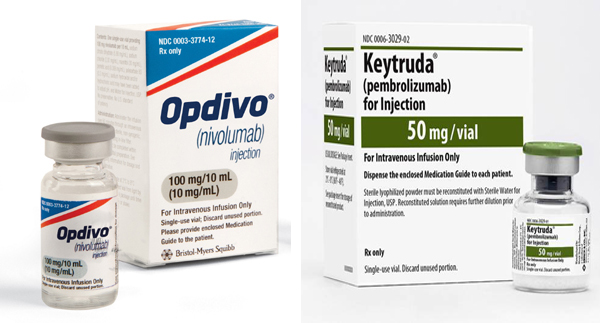HIRA decides to apply ‘refund type’ payment to spread risks
Much to the relief of cancer patients, the moves toward the insurance coverage of immunotherapeutic anticancer drugs are gaining a lot of momentum these days.
To be benefited by insurance payments for the first time are two cancer treatments made by MSD based on immunotherapy – Opdivo (compound: Nivolumab) and Keytruda (compound: Pembrolizumab) -- officials said.

Health Insurance Review and Assessment Service건강보험평가원(HIRA) held a meeting of Pharmaceutical Benefits Committee on Thursday and discussed converting the two drugs into medicines that are subject to insurance benefits. The panel agreed to apply Risk Sharing Agreement (RSA) on the two drugs but differentiate the scopes and occasions of such application between them.
The application model would be a reimbursement type. That means if a medical institution claims medicine costs, National Health Insurance Service국민건강보험공단(NHIS) provides them, and gets part of the expenses from pharmaceutical companies, in the form of a refund.
RSA is a system aimed to enhance patients’ accessibility to new drugs by forcing the government and pharmaceutical firms to share risks if there are uncertainties in new medicines regarding their clinical usefulness, cost-effectiveness or financial impacts on healthcare insurance
HIRA applies this system to drugs treating rare or incurable diseases, which were released in the markets because of proven efficacy but couldn’t get medical coverage due to high prices. Pharmaceutical companies refund some of the insurance benefits to the government, helping to ease financial burdens on the national health insurance system. HIRA has applied the system to 13 drugs since the agency introduced it in January 2014.
“It is hard to tell the details because it is a very sensitive issue. We have yet to complete the assessment or notify the drugmaker of the results. As a whole, however, there was little difference of views to turn these drugs into medicines subject for insurance benefits,” said an official at HIRA. “The final decision will come after a series of procedures, such as a report from the HIRA chief, price negotiation between insurers and drugmakers and approval by Health Insurance Policy Deliberation Committee (HIPDC). It usually takes two weeks for internal evaluation at HIRA, but we will try to reduce the deliberation period”, added the official.
If pharmaceuticals accept the decision, they will negotiate the upper limit of drug prices with health insurance agency and HIPDC will finalize the plan, he added.
Since the release of the immune-oncology therapy, cancer patients have strongly called for their insurance coverage. Because of their high prices and the difference of view over the payment criteria between the government and drugmakers, however, they have put off discussions, forcing some patients to get the uninsured therapy by shouldering high prices.

